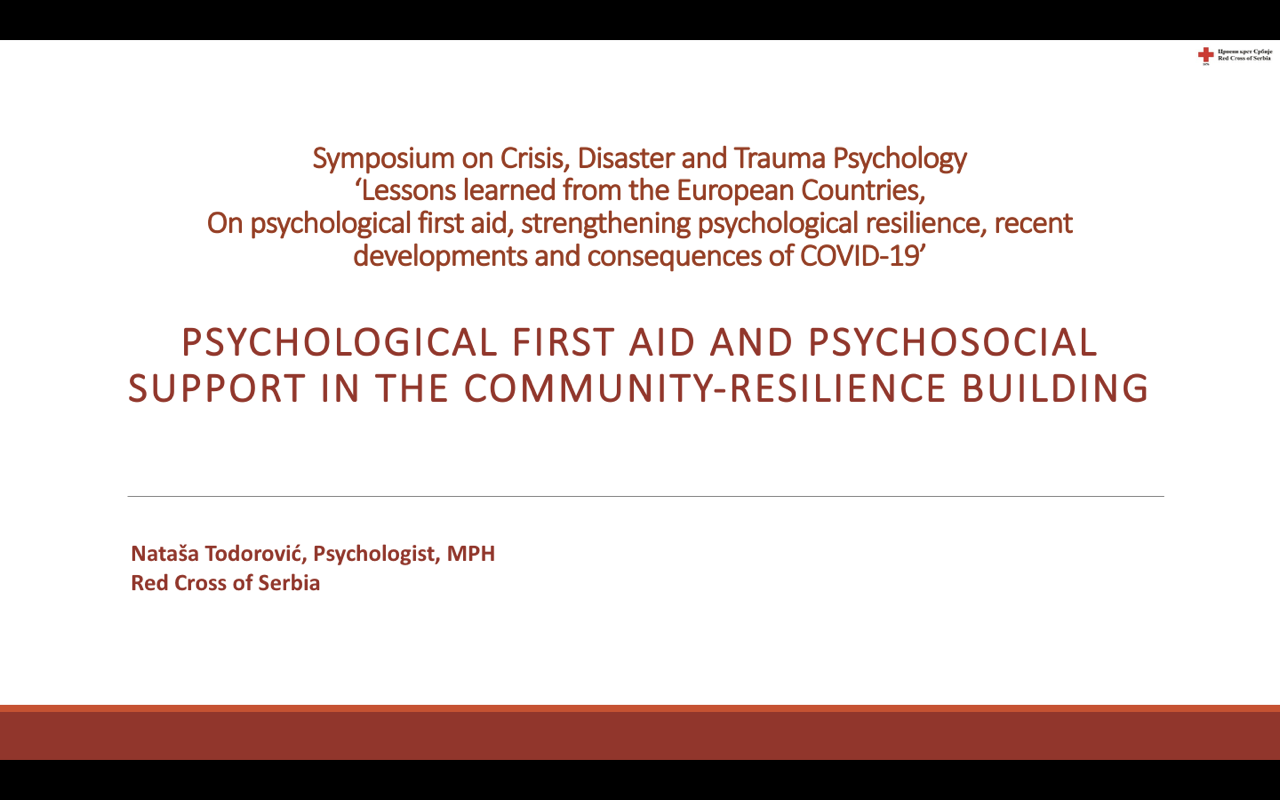Symposium on the psychology of crises, catastrophes and trauma

On October 15, the European Federation of Psychologists' Associations (EFPA), the Serbian Psychological Association and the University of Belgrade organized an online symposium on the psychology of crises, disasters and trauma entitled "Lessons learned from European countries, psychological first aid, strengthening psychological resilience, recent developments and the consequences of COVID-19”. At the invitation of EFPA, Natasa Todorovic, a psychologist and expert associate of the Red Cross of Serbia, presented the projects that the Red Cross of Serbia has been implementing since the beginning of the COVID-19 crisis and which it is still implementing. She emphasised in particular that the activities of the Red Cross are aimed at helping the vulnerable population living in difficult living conditions, and in times of crisis, the risk of stigma, discrimination and violence increases.
Whenever accidents, catastrophes and armed conflicts occur, when there is an economic crisis, when there are refugees and when people lose their relatives and friends, homes and livelihoods, emotional pain, sadness, anger and frustration become part of those losses. By engaging in these situations, in addition to saving lives, employees and volunteers of the Red Cross of Serbia place emphasis on the protection and improvement of mental health, by strengthening the resilience of the individual, family and community. Providing psychological first aid and psychosocial support in such conditions always reflects the basic principles and values of the Red Cross. During this crisis, the Red Cross of Serbia paid special attention to providing psychological first aid and psychosocial support, making sure that it is available to everyone, both those who use telephones and those who use modern technologies through the "Let's talk" application, making sure that no one is left behind. In order to provide this service, employees and volunteers in the Red Cross of Serbia have continuous education provided by psychologists, as well as supervision.
Building on experiences from the first pandemic wave, the Red Cross of Serbia created “Strengthening resilience of older persons and persons with disabilities during COVID-19 and future disasters” a project which is supported by European Union and Austrian Development Agency and one of its components is mental health. There are 30 regional centres for provision of remote psychological first aid and psychosocial support.
Most callers initially called due to lack of clear information and related fears and uncertainties
- The epidemic, accompanied with „infodemic“ brought with it all kinds of rumours, misinformation and doubts
- This in turn caused different psychological issues in many people: anxiety, fear, stress
- The Red Cross volunteers were trained and instructed to provide both accurate, verified and clear to understand information as well as psychological first aid.

